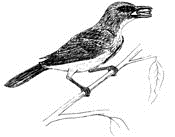Vertebrate Pest Conference: Proceedings

Vertebrate Pest Conference Proceedings: 17th (1996)
Date of this Version
1996
Document Type
Article
Citation
Published in Proceedings: Seventeenth Vertebrate Pest Conference … 1996, ed. Robert M. Timm & A. Charles Crabb (University of California, Davis, 1996).
Abstract
As various societies, especially in the developed countries of the world, acquired a better life-style and standard of living, a common trend developed toward treating animals more humanely, especially the domestic ones. But the movement was too slow, and the animal rights movement captured this void and established a new ethic. Unfortunately, this was done without a full appreciation of the laws of nature. Even though this movement was clearly needed, some people have carried it too far.
Tonight, hopefully, we can have some good constructive discussions from the audience on this subject after Dr. Steve Sapontzis and I first present our introductory remarks. I respect Steve's views and his moral integrity. We are both professionally qualified persons who have the right to discover, teach and publish the truth as we see it in our fields of competence. From my point of view, I do not agree with animal rightists who claim it is morally wrong to use animals, no matter how humanely and responsibly they are handled. Examples include the dissection of animals in class rooms, or using animals in research, as game, or as food or for materials. But I do admit that most perspectives about animal welfare have both strengths and weaknesses, so during the discussion do not hesitate to express your own ethic about these issues and make Steve and me defend our beliefs.
Included in
Animal Sciences Commons, Bioresource and Agricultural Engineering Commons, Environmental Engineering Commons


Comments
Copyright © 1996 (where applicable) by the Vertebrate Pest Council of the Vertebrate Pest Conference. Used by permission.